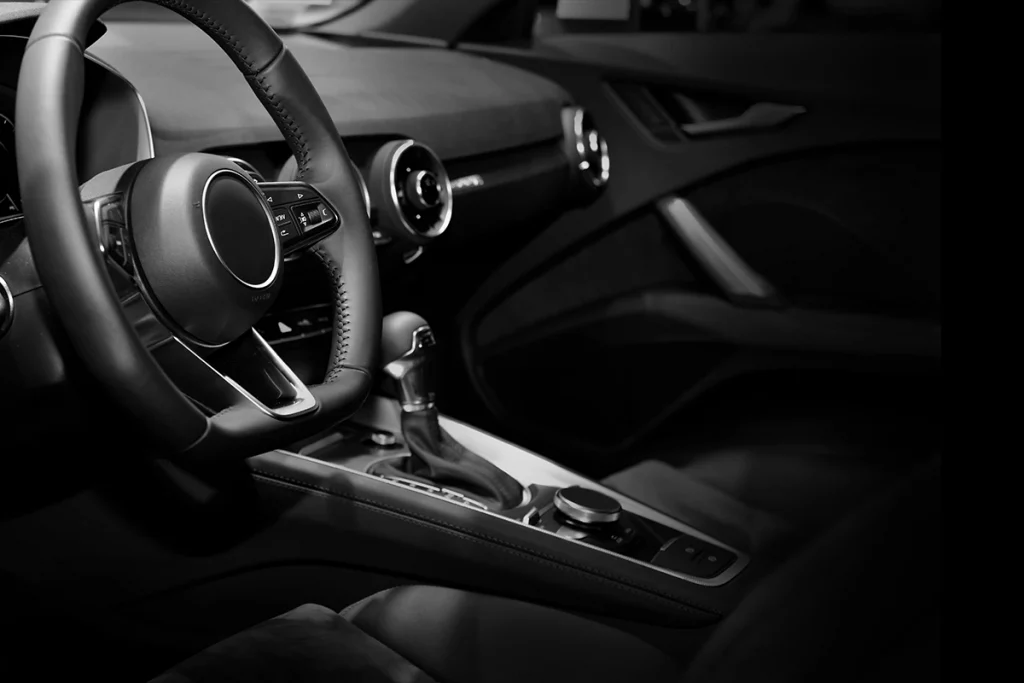| Comparison | Carbon Fiber Parts | Aluminum Parts |
| Strength | stronger than aluminum | high tensile |
| Durability | resistant to rust and corrosion | resistant to rust and corrosion |
| Weight | lighter than aluminum | lighter than traditional iron or steel |
| Maintenance & Repair | more susceptible to damage and more complex to repair | easier to repair and maintain |
| Cost | more expensive than aluminum | more cost-effective |
| Availability | more challenging to obtain in large quantities | more widely produced and available |

source: pinterest
As cars continue to evolve, so do the materials used to make them. Car part materials play a crucial role in the overall performance and appearance of a vehicle. Two popular materials used for car parts are carbon fiber and aluminum.
Carbon fiber is a composite material made of carbon fibers and resin. It has become increasingly popular in recent years, mainly due to its impressive strength to weight ratio. Aluminum, on the other hand, is a lightweight and durable metal that has been used in car manufacturing for many years.
In this article, we will explore the differences between carbon fiber parts and aluminum parts for cars and which is a better option for your car.
Carbon Fiber Car Parts

source: pinterest
Carbon fiber is known for its remarkable strength and lightweight nature, making it an ideal material for car parts.
This strength-to-weight ratio makes carbon fiber parts much lighter than traditional materials without compromising on strength, improving fuel efficiency and vehicle performance.
In this section, we will explore the advantages of using carbon fiber car parts, the types of exterior car parts and interior car parts made from carbon fiber.
Advantages of Carbon Fiber Car Parts
One significant advantage of carbon fiber car parts is their lightweight nature, which translates to better fuel efficiency and improved vehicle performance. Carbon fiber parts are also highly durable, resistant to rust and corrosion, and have excellent thermal and acoustic insulation properties.
Carbon Fiber Car Exterior Parts
Exterior car parts made from carbon fiber, such as hoods, spoilers, bumpers, and side skirts, not only enhance the car’s aesthetics but can also improve performance by reducing wind resistance.
Carbon Fiber Car Interior Parts
Interior car parts made from carbon fiber, such as dashboard trim, door panels, and racing bucket seats, add a sleek and modern look to the car’s interior while reducing overall vehicle weight.
It’s worth noting that carbon fiber parts are generally more expensive than steel or aluminum and that availability may vary depending on the manufacturer.
Aluminum Car Parts

source: pinterest
Aluminum is a lightweight metal that has been used in the manufacturing of car parts for decades. Its popularity stems from its high strength-to-weight ratio, corrosion resistance, and thermal conductivity, making it an ideal material for many car parts.
In this section, we will explore the advantages of using aluminum for car parts, and its applications in both car exterior and interior design.
Advantages of Aluminum Car Parts
Aluminum is a silvery-white and soft metal that is abundantly found in the earth’s crust. Due to its natural abundance and unique properties such as lightweight, durability, and corrosion resistance, aluminum has become a popular choice in the production of car parts. These properties help to improve fuel economy, performance, and strength of the vehicle’s components.
Aluminum Car Exterior Parts
Aluminum can be used to construct various car exterior parts, including car frames, body panels, wheels, suspension, and powertrain components. When used for exterior design, aluminum parts can enhance a car’s style, performance, and fuel efficiency. For example, aluminum hoods and doors can significantly reduce vehicle weight, thereby improving acceleration, handling, and fuel economy.
Aluminum Car Interior Parts
In the interior, aluminum parts such as instrument panels, door panels, and steering wheels can create a stylish and sleek design while being lightweight and durable. Aluminum interiors not only look great, but also add a touch of luxury and sophistication to any car. Additionally, aluminum floor panels and roof structures can contribute to overall weight reduction and improve fuel economy.
Carbon Fiber VS. Aluminum

source: pinterest
Both carbon fiber and aluminum are popular materials for car parts, known for their high strength and light weight.
In this section, we will compare the two materials in terms of their strength and durability, weight and performance, maintenance and repair considerations, as well as cost and availability.
Strength & Durability
Carbon fiber is a stronger material than aluminum due to its unique composition of interlacing fibers. However, aluminum also exhibits high tensile strength and can withstand significant physical stress without compromising its structural integrity. Both materials are resistant to rust and corrosion, which makes them ideal for car parts.
Weight & Performance
Carbon fiber parts are lighter than aluminum parts, and as such, offer better weight reduction and improved performance in terms of acceleration, handling, and fuel efficiency. However, aluminum parts can also contribute to performance since they are lighter than traditional iron or steel components.
Maintenance & Repair Considerations
Carbon fiber parts are more susceptible to damage from impacts and abrasion, which can compromise their structural integrity. The repair of carbon fiber parts is more complex and requires experienced technicians who are familiar with handling the specialized materials. On the other hand, aluminum parts are easier to repair and maintain since they are more common and can be more easily serviced.
Cost & Availability
Carbon fiber parts are usually more expensive than their aluminum counterparts due to the specialized manufacturing process and their unique composition. Additionally, carbon fiber materials are typically more challenging to obtain in large quantities, which can affect availability and supply chain logistics. Conversely, aluminum car parts are more widely produced and available, making them more cost-effective for the long term.
Overall, both carbon fiber and aluminum have their unique strengths and considerations when used in car parts. The choice between the two materials will depend on the specific requirements and primary needs of the vehicle, as well as the budget and availability of the parts.
Conclusion

source: pinterest
To summarize, carbon fiber and aluminum are both strong and lightweight materials for car parts. Carbon fiber provides exceptional weight reduction and performance, while aluminum is cost-effective and easier to maintain. Choose the right material for your car parts based on specific needs, budget, and availability. As technology advances, new materials will likely be developed to improve vehicle capabilities and efficiency.







